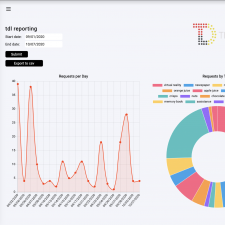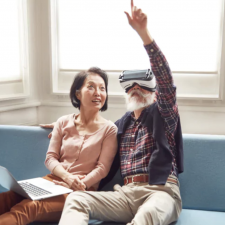Working Smart! – Can virtual reality improve worker performance?
As business investment in VR and AR continues to grow, the opportunities to maximise their potential continue.
Business is one of the key drivers in the success of these technologies and engineers are continuing to tinker with design and development.
A recent study from Dell, titled the Dell Future Workforce Global study for 2016, suggested that millennials anticipate they will be working in redesigned offices of the future within the next few years. Anyone currently employed in an office environment may wonder just how intelligently they are connected through current technology and decide that we are far from working smartly. This lack of creative application is likely to be hampering productivity and efficiency.
The study said that 47% of the baby boomer generation claimed they were willing to use these emerging virtual technologies in their working lives, a huge 77% of millennials expressed their willingness to do the same. Perhaps even more startling was the fact that 87% of those polled in developing countries were happy to embrace the concept.
Delving further into the study revealed even more interesting results.
On the question of workplace productivity, 52% of millennials believe augmented and virtual reality applications will increase output, compared to only 35% of the baby boomer professionals. When assessing which countries believed the most impact would be felt – either positively or negatively – from the technology, Brazil reported the highest belief that VR and AR would improve productivity, while somewhat surprisingly, India were most concerned that it would decrease productivity.
For the sceptics out there, it is worth remembering that businesses who are investing in the technology are universally seeing a positive ROI.
With AR and VR now making huge inroads across many areas of industry, the most innovative minds are creating new and exciting ways to integrate VR headsets and smartphones for best effect.
Some of the most progressive include health care, construction, transportation, property, entertainment, tourism and retail.
In the UK, Foxtons were one of the first estate agents to offer customers the ability to visit properties through virtual reality to explore potential homes without ever taking a step outside the office.
Not only does this mean they can keep visitors in one location, it cuts down on travel costs for both the business and their customers and makes life easier for vendors who don’t necessarily have to endure countless buyers descending on their homes at unsuitable times. Then there’s the advantage of having VR to help with design and building, creating 3D models of structures before construction begins and in some cases eliminating the need for expensive physical models to be built.
The motor trade is embracing this technology by allowing potential buyers to virtually test drive their latest vehicles from either the showroom or even the comfort of their own homes. This gives the automotive industry the ability to cut costs on vehicle demonstrations. Perhaps they will even pass those savings on to consumers!
Back in 2015, the University of California, Los Angeles (UCLA) began using virtual reality with Oculus Rift to teach new surgery techniques to trainee surgeons. UCLA now uses VR in its surgical theatres, allowing students to practise intricate procedures and improve their precision.
The pace of change is dramatic and, with more companies now set to explore and invest in VR and AR, the next 12 months are likely to provide us with the best insight yet into how quickly this technology will become more the norm than the exception.
If you would like to discover more about Dell’s Future Workforce Study click the link. Over 3,800 knowledge workers in ten separate countries were interviewed as part of the future of work and productivity exercise.
AG
Tags: Augmented Reality, Future Technologies, Virtual Reality

 Share On Facebook
Share On Facebook Tweet It
Tweet It


















